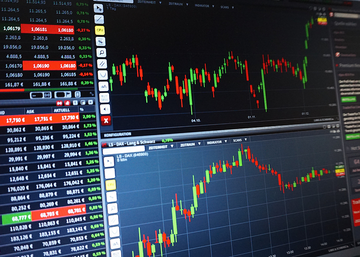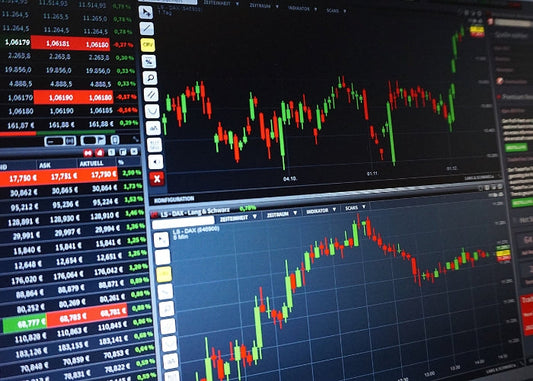How does the stock market work?

The stock market is part of the capital market that brings the demand for and the supply of capital together. Suppliers of capital are those who are looking for a profitable use for their savings. Representing this group are often financial intermediaries such as banks or funds, which make the pooled financial resources available to the capital market. Demanders of capital are usually companies or other institutions that need funds to finance investment projects.
The stock market is a state-regulated market in which the framework conditions are regulated by the sovereign. The regulation of national stock markets is essentially the responsibility of the respective national institutions, such as the U.S. Securities and Exchange Commission (SEC). Their tasks include the control of trading and compliance within the legal framework with the purpose of protecting shareholders and preventing illegal practices.
With a few exceptions, shares are nowadays generally not traded physically but deposited in electronic form with so-called custodians. Shares are acquired via banks or brokers with which investors have their share accounts. Their trading systems are linked to the stock exchanges via electronic data processing systems, which are then used to process buy and sell orders (securities orders) from market participants.
There are numerous stock exchanges and brokers, and not every stock can be purchased through every broker or stock exchange. Where the particular share can be traded is determined when the share is issued. The stock market is therefore not a centrally organized institution, but consists of many trading houses and institutions located in very different places and interconnected via electronic systems. Together with the market participants, they constitute what is commonly understood as the stock market.
Order forms
Market order
Is a unlimited buy or sell order to be executed at the next price determination.
Limit Order
Is a limited buy or sell order that is to be executed at a specified limit or better.
Iceberg Order
This order form provides the possibility of placing large order volumes in the order book during continuous trading without disclosing the total volume to the market.
Stop Market Order
Automatically placed in the order book as a market order when the stop limit is reached (exceeded in the case of stop buy orders or fallen short of in the case of stop loss orders).
Stop Limit Order
When the stop limit is reached (exceeded in the case of stop buy orders or fallen short of in the case of stop loss orders), this order is automatically entered in the order book as a limit order.
Trailing Stop Order
A trailing stop order is a stop market order with a variable stop limit.
One-Cancels-the-Other Order
A one-cancels-other order is a combined order consisting of a limit order and a stop market order. When the limit order is fully executed or the stop market order is triggered, the order that was not taken into account is deleted.
The Exchange performs the following tasks additionally:
- Providing a trading platform
- Ensuring transparency of prices and turnover
- Admission of new issues to exchange trading
- Calculation of indices (these are considered as "mood barometers" of the stock exchange and economy)
Especially in times when the situation on the interest market is anything but rosy and even the first private customers with big savings also have to deal with the issue of negative interest rates, providers for trading financial products are in high demand. Stock trading is a steadily growing market, especially compared to traditional offers, for example via the traditional banks. Here we want to explain how the underlying concept of stock trading works in order to enable an optimal trading approach. The increasingly popular variant of trading stocks via stock CFDs is possible with Trive. In addition, we provide assistance with trading in general.
No comments
Home
Trive
TriveHub





0 comments